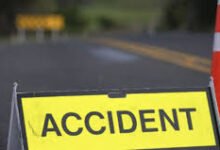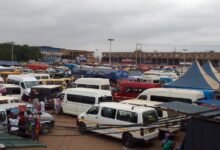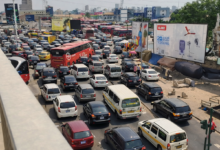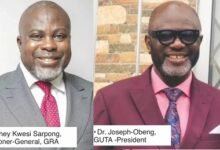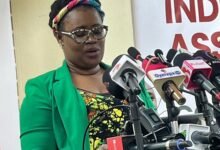
Justice Affia Serwaa Asare-Botwe, a Court of Appeal judge says she will try and finish the trial of the Minority Leader, Dr Cassiel Ato Forson, by December 31.
Justice Asare-Botwe, who is sitting with additional responsibility as a High Court judge, in the ambulance transaction case, in which Dr Forson and Dr Sylvester Anemama, a former Chief Director of the minister, are accused of causing financial loss of €2.37m to the state, said judgement would be delivered in February 2024.
“We will try and finish this case by December 31, and we come back in February 2024 for judgement,” the judge said.
Justice Asare-Botwe said these when Mr Edudzi Tamekloe requested the court to excuse the Minority Leader to partake in the 2024 Budget Review.
Mr Tamekloe held the brief of Dr Abdul Aziz Basit Bamba, who is the counsel for Dr Forson.
Justice Asare-Botwe turned down the request and said the trial would proceed in the absence of the Minority Leader on November 21.
Both Dr Forson and Dr Anemana had pleaded not guilty on all counts of wilfully causing financial loss to the state.
The Attorney-General and Minister of Justice, Mr Godred Yeboah Dame, prosecuting, said on August 12, 2014, Dr Forson wrote to the Controller and Accountant-General authorising the release of GH¢806,688.75 to the Minister of Health for the payment of bank charges covering the establishment of Letters of Credit (LCs) for the supply of 50 Mercedes Benz ambulances and related services.
Mr Dame said Dr Forson further directed that the LCs should be charged to the budget of the Ministry of Health contrary to the Parliamentary approval on the funding for the supply of the ambulances.
The Attorney-General said the Controller and Accountant-General on the authority of the letters dated August 7 and 12, 2014, written by Dr Forson to the Bank of Ghana authorised it to establish an irrevocable transferable LCs in the sum of €3,950,000 in favour of Big Sea.
Mr Dame said by February 2015, 30 ambulances had arrived in Ghana and a post-delivery inspection revealed that they had no medical equipment, and there were other defects
BY MALIK SULLEMANA



